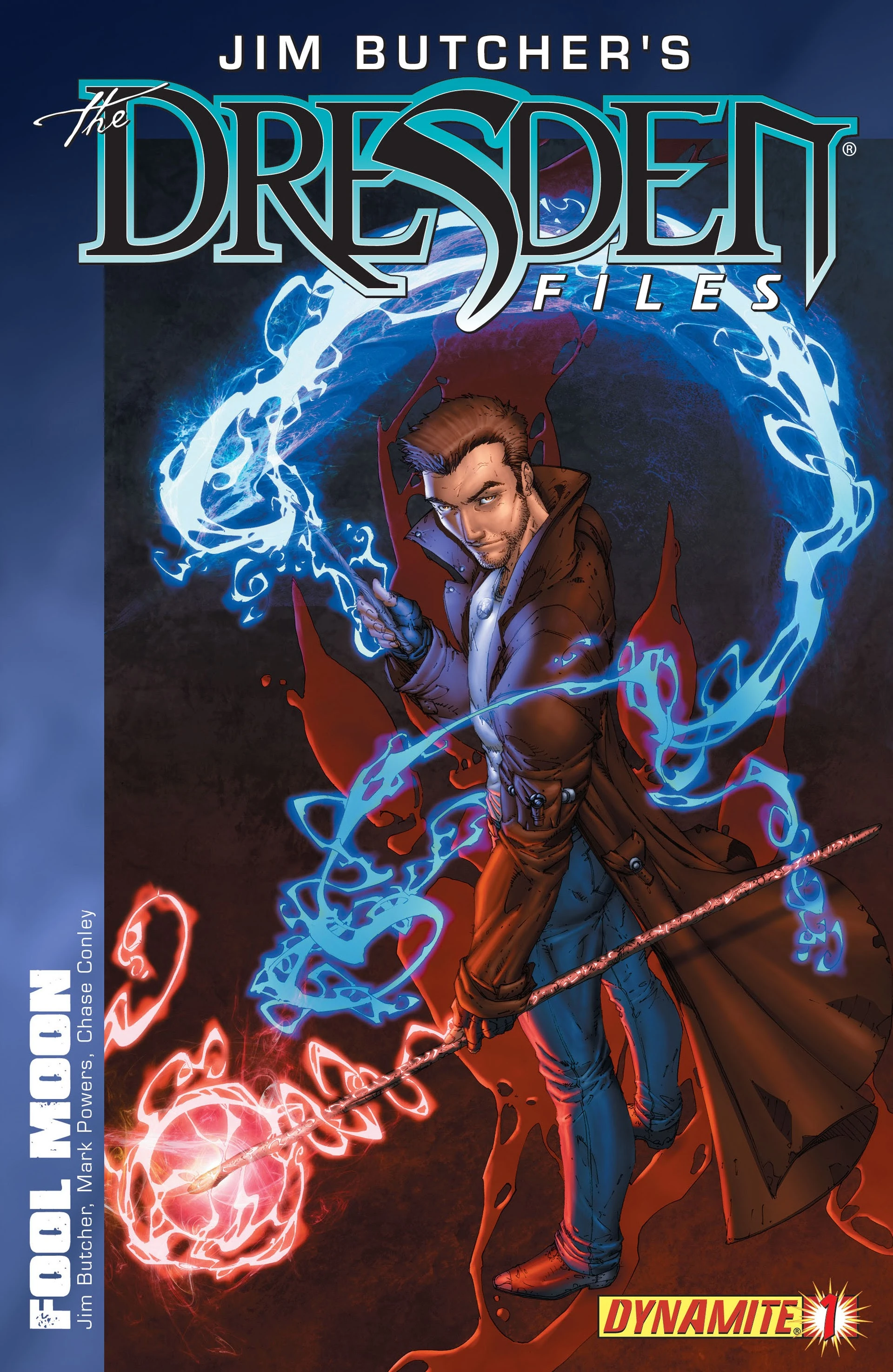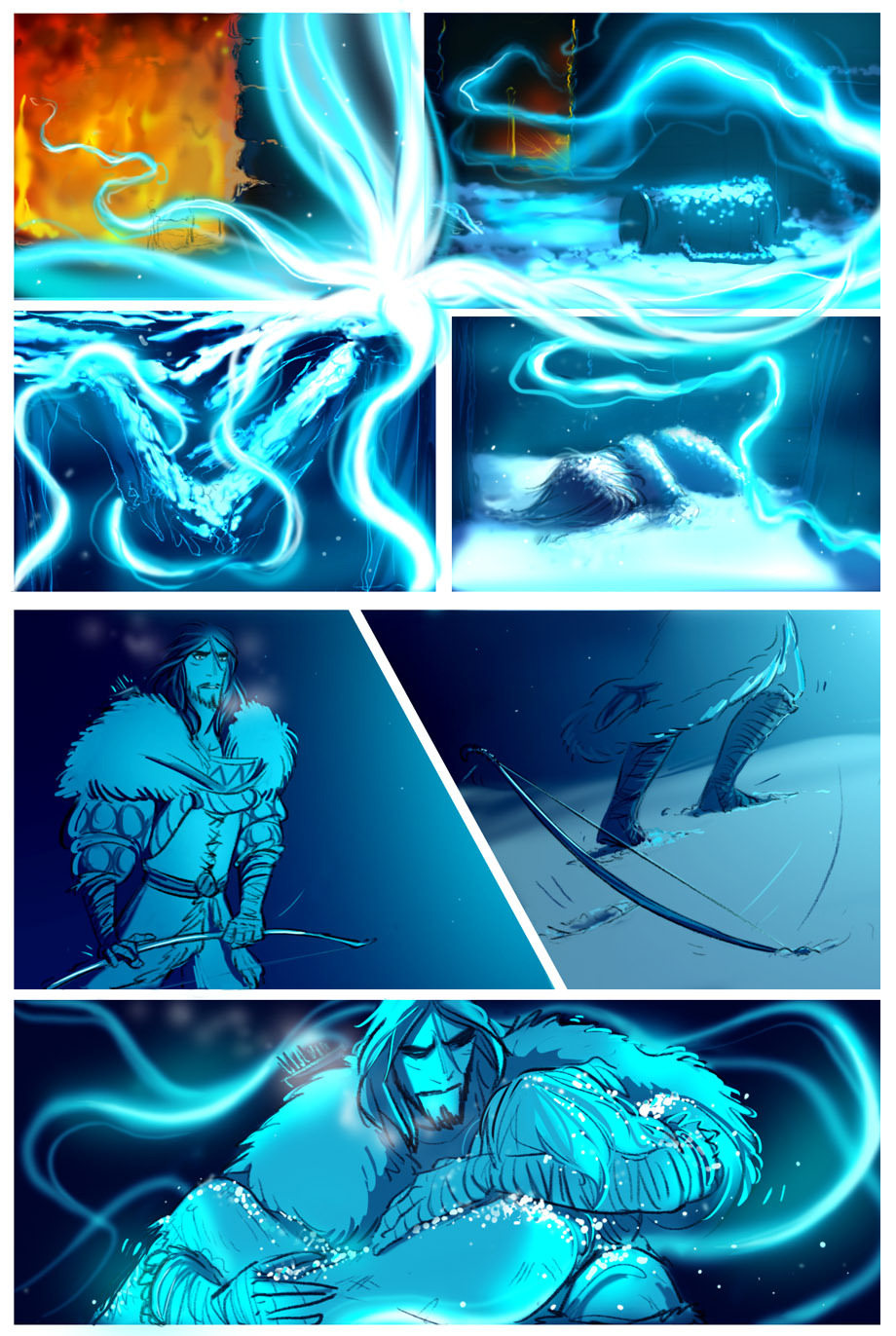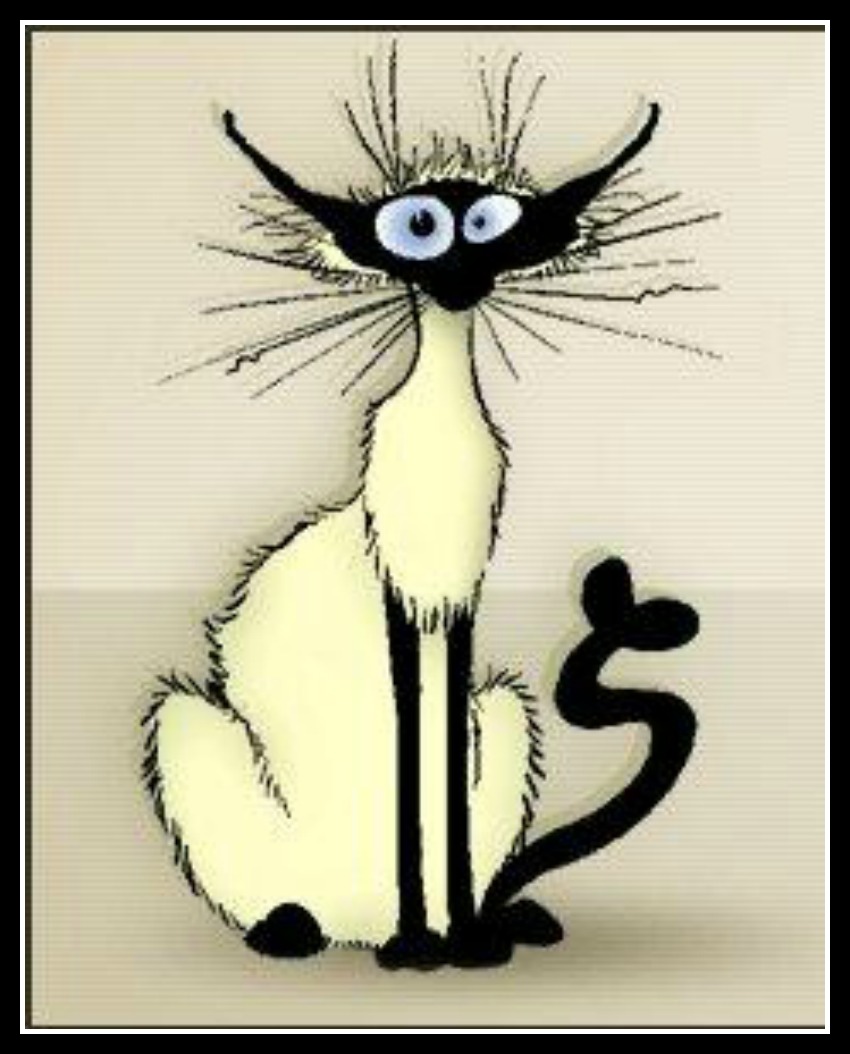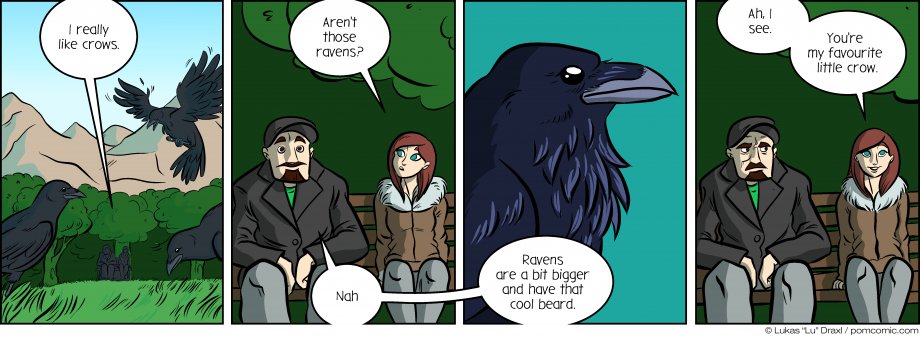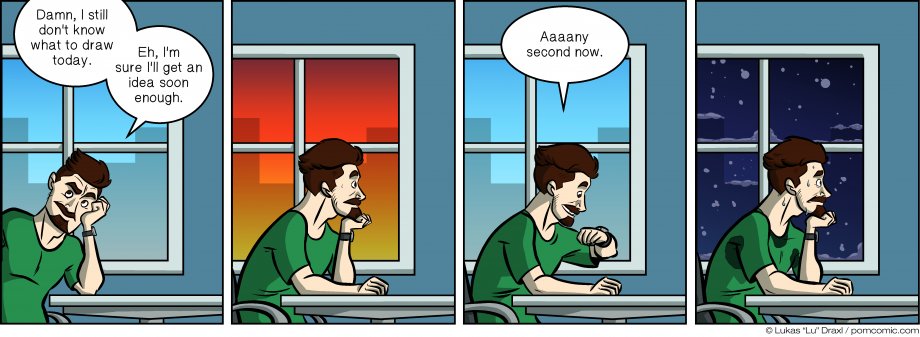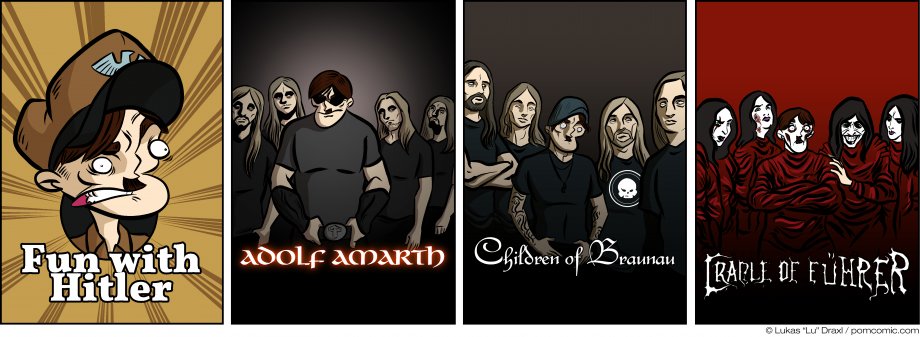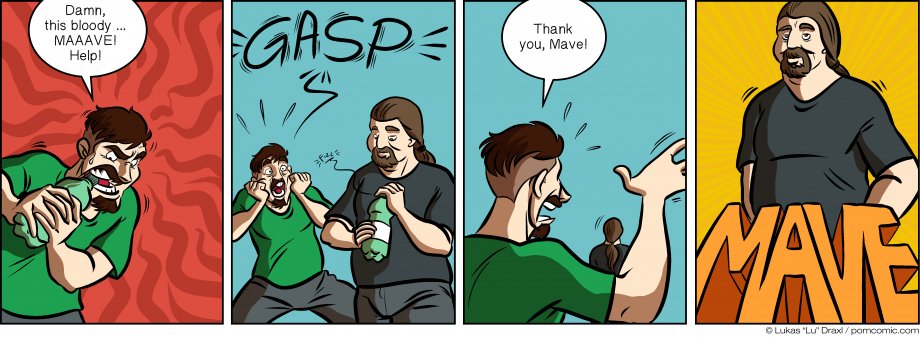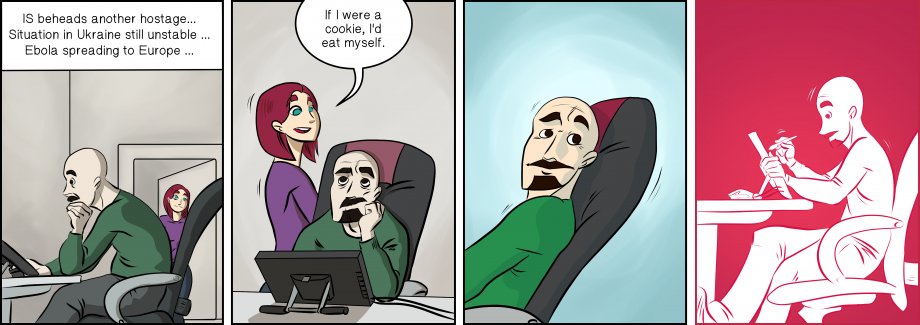You Wanna See A Show?
Come See Something Fangtastic!
"For this I rose from the dead?!" That's the refrain of Cat, a seventy five year dead vampire who found out that being a master of the night isn't all it's cracked up to be. Not only does he have to mooch around goth bars in order to get a quick bite to drink, deal with girls who are Tweeting instead of falling under his spell and read completely inaccurate literature on his species at his day job, now someone's dumped definitive proof that there are vampires onto the Web. This is just not Cat's decade...
The creation of Sarah Roark, 'After Daylight' can be found here
If you're sick of sparkly and annoying/pompous, monologing and annoying/ impossibly perfect and annoying/devilishly hard to kill and annoying/MAUDLIN and self pitying and ANNOYING vampires, 'After Daylight' is the answer! It explores the ins and outs of being a modern vampire with more wit and candor than I've ever seen before.
The Rating
Fangtastic!
The Raves
From page 1, I was laughing and loving 'After Daylight.' It, out of all the vamp lit out there, really gets to grips with the central feature of vampire existence: the precarious nature of their power. Vampires alternate to extremes: extremely strong at one moment, totally helpless at another. And they've got the intelligence to be completely aware of it too. No wonder so many of them are twitchy!
And then you add in ethics. Being an ethical vampire is NOT a fun life. Being an ethical modern vampire is...well...
EXASPERATING.
And then you add in ethics. Being an ethical vampire is NOT a fun life. Being an ethical modern vampire is...well...
EXASPERATING.
'After Daylight' explores this to its fullest and most hilarious logical ends, with sharp, snarky social commentary, hilarious moments of 'old world meets new' and gorgeously sarcastic wit.
'After Daylight' is one of the most common sense and direct takes on the vampire genre that I've ever seen. Beyond exploring the issues of getting a bite (heh heh heh) the creator gets down to brass tacks and modern tech. It's awfully hard for vamps to stay hidden in a world full of cheap hand held laser thermometers. It's a lot harder to hide anything in the Age Of Internet, when people across the world are nattering at one another non stop. So what are vamps to do? Come out of the casket of course.
There's an element of delightful genre-mocking that I've only seen the sainted Terry Pratchett pull off as well when handling the vampire mythos, balanced with great exploration of political maneuvering and posturing, herd mentality and societal shifts,all wrapped up in a wryly funny slice-of-life package. The writing has a flare for giving characters the chance to say just enough to realize how foolish they sound, whether it be people realizing that they're more bigoted than they think, ancients realizing that for all their supernatural abilities they can't figure out their Smartphones, or daily working stiffs dealing with every day issues and finding that they need a lot of ketchup for that foot in their mouths...
but that's not the only place the writing shines. There is some really moving exploration of rhetoric and the power of public speaking as the vampires take to modernity, go on TV and speak to the people, drawing fascinating parallels with present and prior civil rights movements in America; taking the idea of 'vampires among us' out of spoof territory and into the realm of powerful social change fable, before it lets we readers back in on the joke with snarkily spot on portrayals of how the news and the social media world would go about handling this.
'After Daylight' is one of the most common sense and direct takes on the vampire genre that I've ever seen. Beyond exploring the issues of getting a bite (heh heh heh) the creator gets down to brass tacks and modern tech. It's awfully hard for vamps to stay hidden in a world full of cheap hand held laser thermometers. It's a lot harder to hide anything in the Age Of Internet, when people across the world are nattering at one another non stop. So what are vamps to do? Come out of the casket of course.
There's an element of delightful genre-mocking that I've only seen the sainted Terry Pratchett pull off as well when handling the vampire mythos, balanced with great exploration of political maneuvering and posturing, herd mentality and societal shifts,all wrapped up in a wryly funny slice-of-life package. The writing has a flare for giving characters the chance to say just enough to realize how foolish they sound, whether it be people realizing that they're more bigoted than they think, ancients realizing that for all their supernatural abilities they can't figure out their Smartphones, or daily working stiffs dealing with every day issues and finding that they need a lot of ketchup for that foot in their mouths...
but that's not the only place the writing shines. There is some really moving exploration of rhetoric and the power of public speaking as the vampires take to modernity, go on TV and speak to the people, drawing fascinating parallels with present and prior civil rights movements in America; taking the idea of 'vampires among us' out of spoof territory and into the realm of powerful social change fable, before it lets we readers back in on the joke with snarkily spot on portrayals of how the news and the social media world would go about handling this.
The art gives the smudgy, off-the-cuff impression of an underground 'zine without jeopardizing the artistic grasp of pose, anatomy and scene framing, underlining the wry noir nature of the work.
The Razzes
So, about the 'zine look...it's cool, but that smudgy aesthetic can be carried too far. While the line work of the comic is gorgeous, I often got the feeling that it was dragged down by the shading style, which isn't nearly as sharp or professional. Compare the two images below:
I have to say, I actually prefer the uncolored version. If the shading style used in the promotional picture that headlines this blog were used throughout the comic, the work would look a LOT sharper. It'd also help if the work was loaded a bit larger; a lot of scenes seem a touch diminished and shrunken. This comic has grown a lot since its inception, and I look forward to seeing its artistic style continue to grow and improve on its weaknesses.
I have to say, I actually prefer the uncolored version. If the shading style used in the promotional picture that headlines this blog were used throughout the comic, the work would look a LOT sharper. It'd also help if the work was loaded a bit larger; a lot of scenes seem a touch diminished and shrunken. This comic has grown a lot since its inception, and I look forward to seeing its artistic style continue to grow and improve on its weaknesses.
The Revue
This is one you definitely want to sink your teeth into. Yum!



















